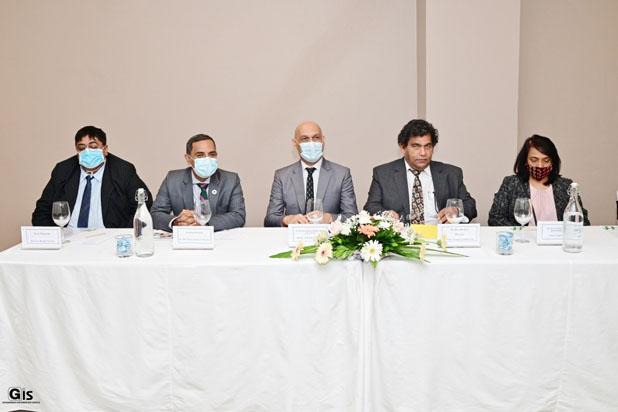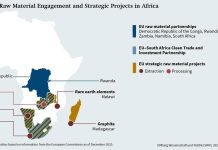Africa-Press – Mauritius. The Ministry of Health and Wellness held, today, at Holiday Inn in Plaine Magnien, a half-day capacity building programme on the District Hospital Information Software 2 (DHIS2) and the Integrated Disease Surveillance Response (IDSR) projects.
The DHIS2 is an open source, web-based platform, developed by the University of Oslo, and is most commonly used as a health management information system.
The projects are being carried out in Mauritius with the support of the Indian Ocean Commission (IOC), under the SEGA (Epidemic Surveillance and Alert Management) – One Health initiative, and with the assistance of the World Health Organisation (WHO).
While the IOC provided some 80 digital tablets to health personnel in the context of the projects, the WHO was assisting the Ministry of Health and Wellness in terms of the software and related training.
At the opening ceremony of the workshop, the Minister of Health and Wellness, Dr Kailesh Kumar Singh Jagutpal, was accompanied, by the WHO Representative in Mauritius, Dr Indrajit Hazarika; the Director of the IOC, Mr Dev Phokeer; and other personalities.
In his address, Dr Jagutpal reiterated the imperative to introduce the use of technology in the health management system with a view to improving health efficiency and effectiveness.
He stated that extensive progress had been made in the implementation of the E-health project for which the request for proposal was under preparation.
“In the meantime, my Ministry has already started to make use of digital solutions in health management,” he affirmed.
Speaking of the DHIS2, Dr Jagutpal explained how the software would allow health information collected at community level to be centralised in a main data centre.
He indicated that the database collected would consequently offer a comprehensive picture of the population’s health status and pave the way for an efficient and timely Integrated Disease Surveillance and Response.
He added that such data would enable the evaluation of current health trends, the devising of further appropriate strategies, and an adequate allocation of budget.
According to the Minister, DHIS2 was already in use in certain areas of the health system, namely to catalogue cases of adverse effects following immunisation in the COVID-19 vaccination campaign, and to update patient information for HIV/AIDS and Hepatitis C.
He averred that the software would be used, in the future, at the Neonatal Intensive Care Unit at Dr Bruno Cheong Hospital, for cleft palate cases and in harm reduction endeavours.
Moreover, Minister Jagutpal called on the personal commitment of the health staff in the projects, urging them to engage in the shift towards the digital era so as to enhance health services and become more efficient in their respective mandates.
He assured the population that the Ministry would continue to train its staff in order to allow them to be fully conversant with the forthcoming digital transformations.
For his part, the WHO Representative in Mauritius underlined that the open-source web-based platform DHIS2 was used to capture and analyse health data in 73 countries across the world.
He talked of the participation of the WHO in developing data quality management apps and normative guidance to support countries in better application of DHIS2.
Furthermore, Dr Indrajit Hazarika dwelt on the necessity to integrate data technology that would help monitor the performance of the health system in Mauritius.
He cited areas where health data collection, analysis, and interpretation could facilitate evidence-based programme implementation such as for the ageing population and non-communicable diseases.
As for the Director of the IOC, he put forward the key role of the SEGA – One Health initiative in strengthening regional capacity for monitoring and reducing epidemiological risks, as well as responding to epidemic animal and human diseases.
He dwelt on the integrated and unifying approach adopted under the SEGA to pre-empt the introduction of animal and human diseases through, among others, active health surveillance efforts, and capacity strengthening of stakeholders in the early detection of epidemics.
For More News And Analysis About Mauritius Follow Africa-Press







